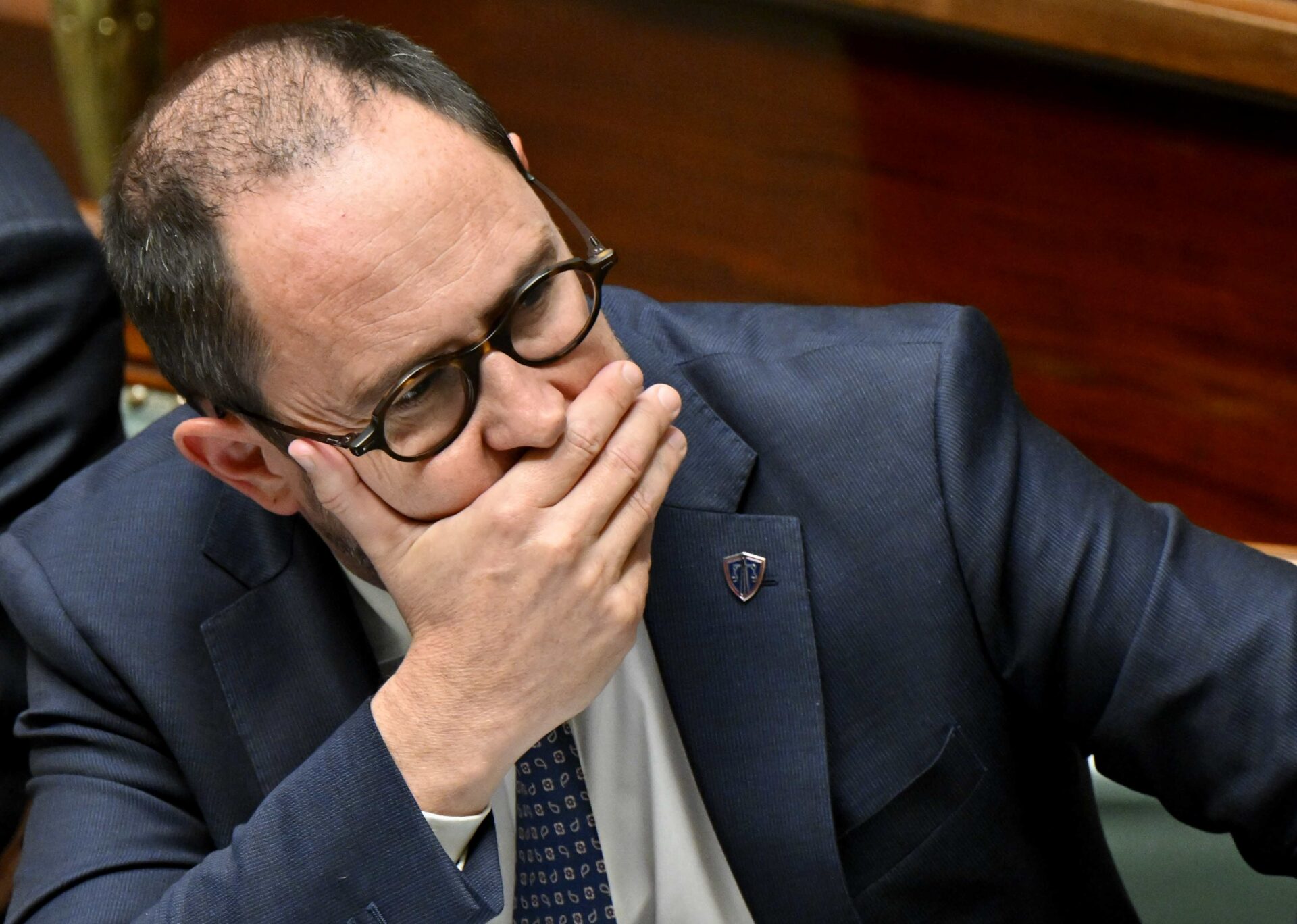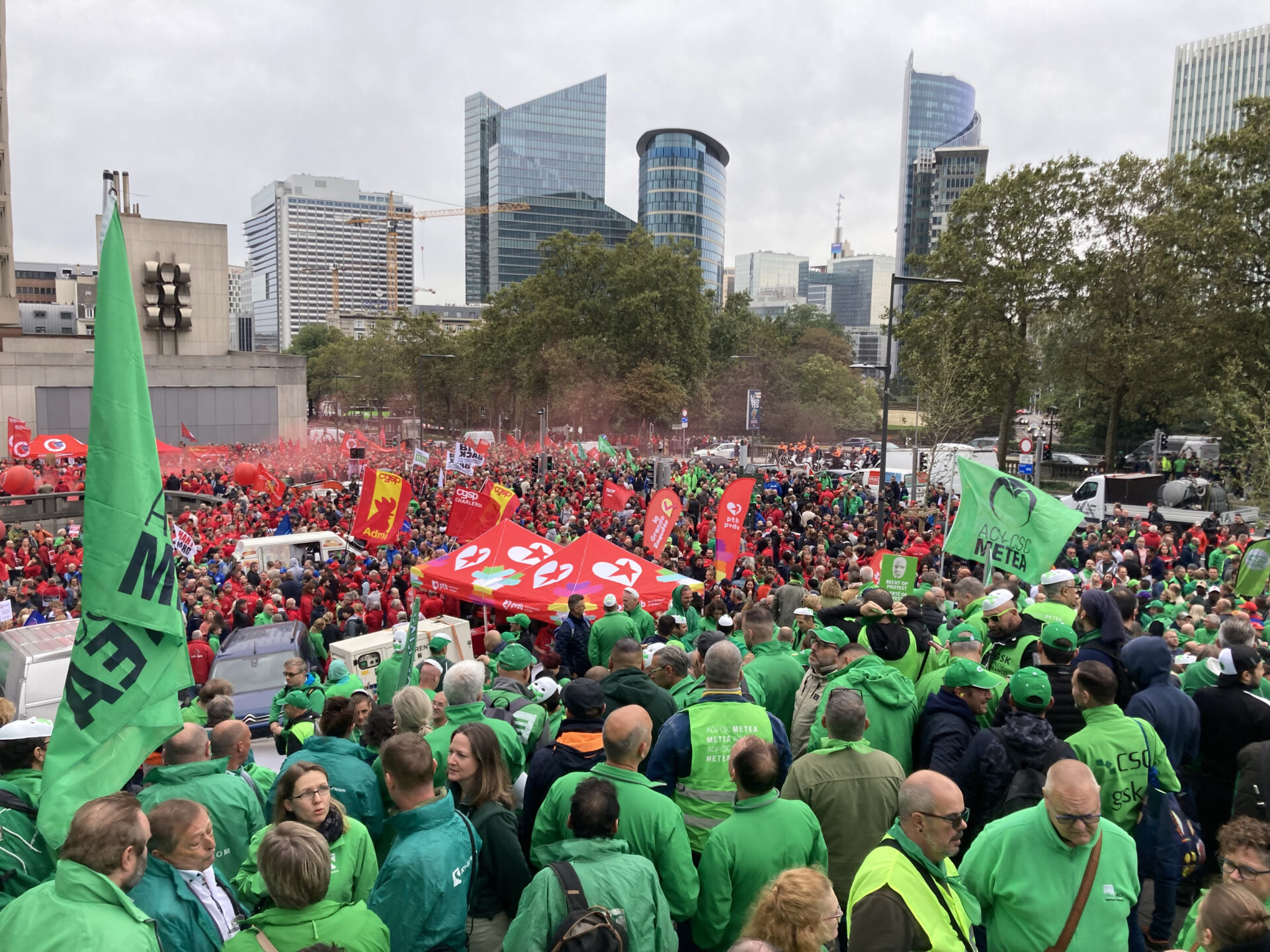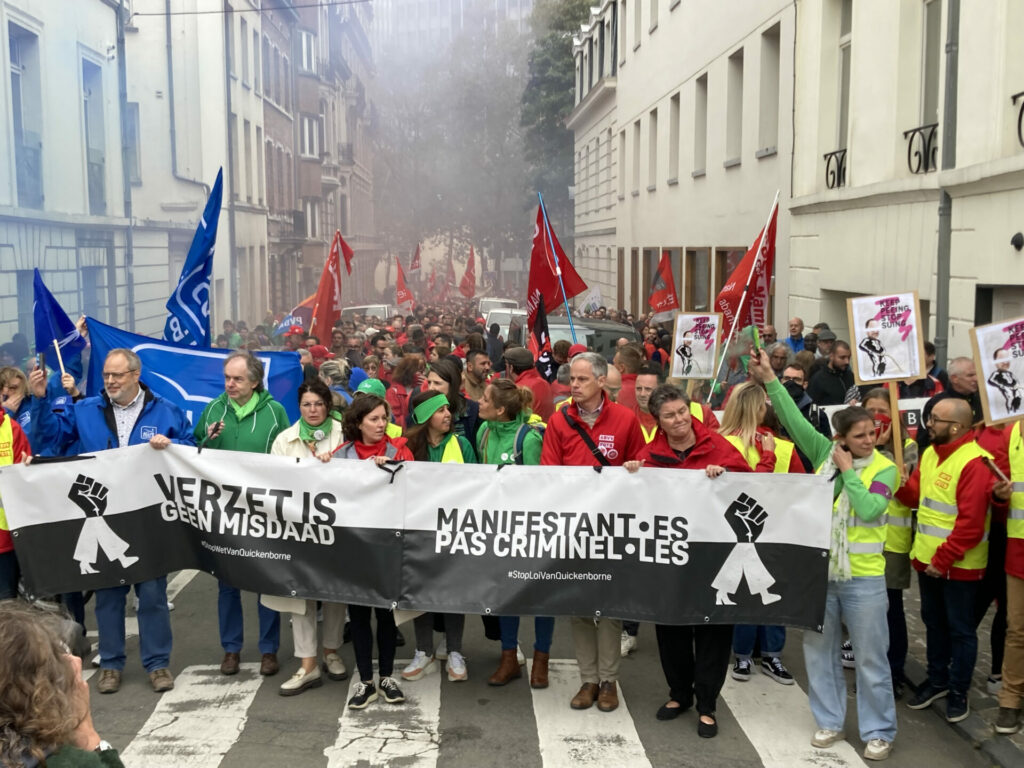Most of Belgium was at a standstill on Thursday as trade unions and NGOs demonstrated in Brussels against the so-called Van Quickenborne law.
The new law allows judges to impose a ban on demonstrating for rioters and troublemakers, who "make use of a demonstration to start fires, cause destruction or damage property." Justice Minister Vincent Van Quickenborne unveiled the draft law earlier this year.
Following large-scale opposition, the text was slightly amended, but unions and NGOs argued that the provisions of the law are far too broadly worded, which means the law could serve as leverage to ban ordinary citizens and peaceful demonstrators from demonstrating as well.
For this reason, thousands of Belgians gathered in Brussels to protest against the bill, which has disrupted public transport in Flanders, Brussels and Wallonia, and resulted in car traffic being redirected in the capital.
In response to this large-scale demonstration, Van Quickenborne put out a statement on Thursday, noting that a lot of inaccuracies are being told regarding the bill. He argued that the bill aims to guarantee the right to peaceful protest, not diminish it.
[caption id="attachment_723603" align="alignnone" width="1920"] Justice Minister Vincent Van Quickenborne in parliament today.
Credit: Belga / Eric Lalmand[/caption]
Justice Minister Vincent Van Quickenborne in parliament today.
Credit: Belga / Eric Lalmand[/caption]
"Freedom of expression, the right of association and the right of assembly are fundamental rights firmly anchored in the Constitution," he noted.
"But these fundamental rights do not give the right to beat up a police officer or destroy other people's property," the minister continued. "Now, mayors are sometimes forced to ban demonstrations in advance because they cannot guarantee safety, for fear of another flurry of vandalism and injuries. This curtails the rights of demonstrators."
Hijacking peaceful protest?
The Justice Minister argued that the bill was brought in partly at the request of the police and Brussels Mayor Philippe Close after several demonstrations were hijacked by “hooligans bent on causing violence and destruction.”
"This was the case, among others, during the 23 January 2022 demonstration where fleeing and injured policemen were pelted with stones. Footage shows hooligans in balaclavas running from window to window with a hammer to smash it."
"By excluding rioters from demonstrations via a ban by a judge, these are more likely to be peaceful, allowing peaceful demonstrators to fully exercise their rights.” He added that this will also increase the safety of peaceful demonstrators, law enforcement and the neighbourhood where the demonstration is taking place.

Credit: Belga / Lou Lampaert
To rebuke the arguments made by unions and NGOs, he argued that the ban can only be imposed on people convicted of committing a limited list of serious crimes in the context of a demonstration. Among these, are violence against people or police officers and serious destruction of others' property or public infrastructure.
"Putting up graffiti, smearing facades, throwing firecrackers, roaring at a police officer or chaining oneself somewhere on a public road are not grounds for imposing the punishment," Van Quickenborne noted.
The court also has to balance the gravity of the facts against the curtailment of fundamental rights and freedoms, that the rioter committed the acts deliberately and there is a real chance of recidivism.
He added that the law also clarifies that a strike is not a protest rally, meaning it will not affect trade unions or social actions. "This bill does not change anything about the right to strike," he concluded.

